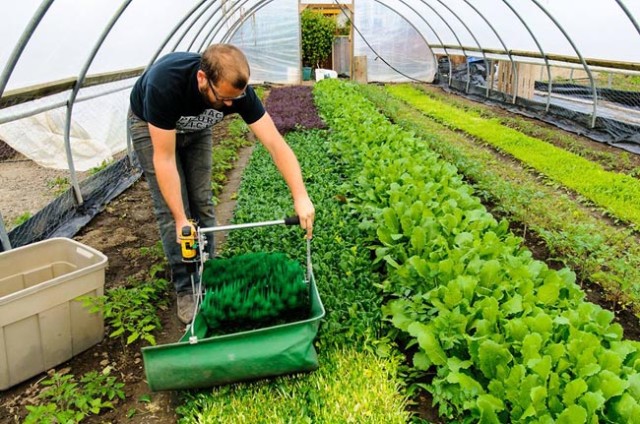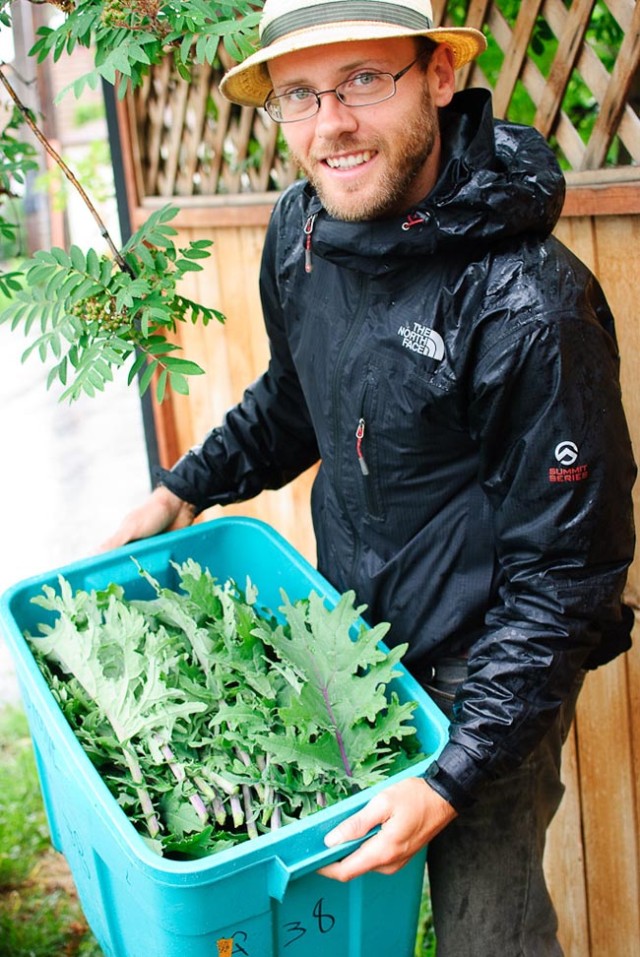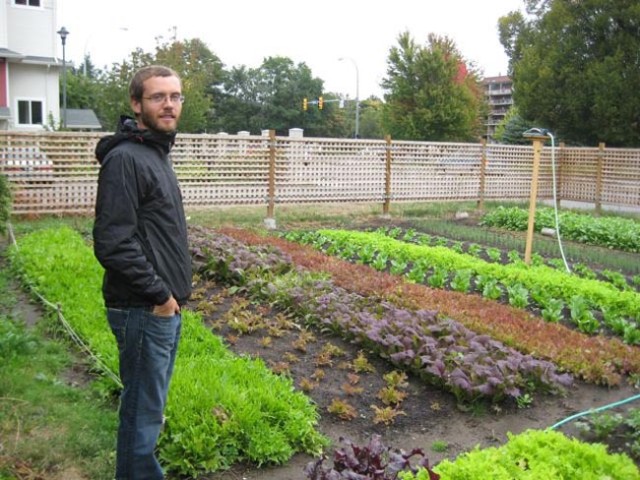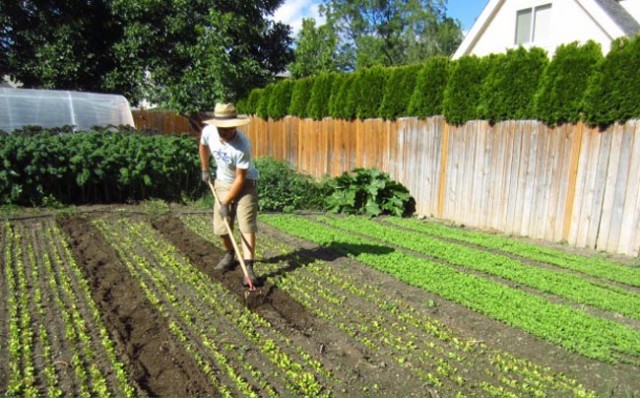Curtis Stone is a hard working and driven man who started his own business using other people’s backyards for farming in an urban environment. He calls this Profitable Urban Farming. After some years he managed to purchase the land where he planted his first crop, ultimately turning it into his base of operations.
Eventually he had to develop his own online course in order to teach all the people who were requesting for advice about this method and system of selling and growing crops. He is so dedicated on sharing his knowledge and experience that he succeeded in turning his neighbors into friends and allies in this quest for sustainability. Curtis is not just a farmer, but also an author, consultant and speaker on topics such as quick growing and high values annual vegetables for direct consumer market streams. In his book called The Urban Farmer he introduces organic intensive techniques centered on business and systems to streamline labor market. This became an alternative to conventional farming, an approach where there is a direct link between quality of life and profit.
His farm is situated in Kelowna, BC, Canada since 2010, and is called Green City Acres. The farm generates over $75,000 per year on only one third of an acre, in an eight month growing season, and is globally recognized with regards to agriculture productivity and profitability in an urban context
You can learn more about Curtis Stone and his farming experience by visiting The Urban Farmer, a channel where he shares his knowledge about urban farming.



















Urban farming update very informative
I could reall use this. Am on a fixed income am disabled yet always try to raise a little fresh food
Curtis – Pretty impressed with you. Couple of questions. You are working on the urban farming in Canada I believe, where urban means [people who have backyards. I live in India where urban means – Terraces on top of Apartment blocks.. Do you think the same logic applies to terraces. Can similar stuff be done on top of the roofs of 10 storey apartment blocks. we do have sufficient sunshine, no SNOW and the best climate for growing crops which nature can offer. looking forward to your response
Balaji, I might look at a heavily stocked aquaponics system. Wicking beds and maybe ebb and flow. If you can trellis a few things, and run micro greens in a rack system, you could produce a lot.